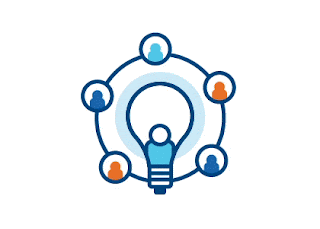From slack to act
How millennials are redefining political movements
The term "slacktivism" was popular just a few years ago when millennials were accused of sharing their views on social media without ever acting on them.That was before Generation Y sparked a series of spirited movements centered on issues including race (#BlackLivesMatter), sexual orientation (#LoveWins), gender (#YesAllWomen), and income equality (#Fightfor15). Millennials, clearly, have graduated from posting to politics.But millennials have a different approach to activism than either Generation X or the Baby Boomers in their younger days. And they ultimately may be just as effective as previous generations—perhaps more so.From words to action
A case in point is "Diversify My Emoji"—a movement that evolved from online dialogue to petition to concrete results. In response to the fact that virtually all the "emoticons" in a popular texting program had white faces, activist organization DoSomething.org launched a social media-powered campaign that convinced a major phone maker to start adding more diversity to the mix.Diversify my Emoji "demonstrates how an online action, with the appropriate target, methods, scale and platform, can achieve real offline impact," said Michaela Bethune, head of campaigns for DoSomething.org.Bethune noted that millennials are no longer limited to traditional forms of civic engagement. "The opportunities for sharing political and social views are more diverse, and therefore millennials have ample avenues to share opinions, unite with likeminded people regardless of geography, and push to move the needle on issues they care about."Quiet activism
Back in 2007, New York Times columnist Thomas Friedman labeled millennials "Generation Q," for Quiet. But, in the background, millennials have been purposely leveraging online resources to inform their offline activism. Take the issue of corporate responsibility: While previous generations relied on protests, boycotts or divestment campaigns, today's millennials can research the social or environmental impact of a product or company online before making a purchase from or working with that company. They've impacted the company's bottom line without saying a word.Millennials have also come of age at a time when it's easier to express views on issues without taking to the streets—and not just through social media. They can buy organic food in grocery stores or "Made in the U.S.A" clothing at a retailer. Or they can steer their investment dollars toward companies that comport with their values, a practice known as "social" or "impact" investing. A recent study by U.S. Trust found that millennials were much more likely than their elders to see investment decisions "as a way to express my social, political, or environmental values."Sector-agnostic
"Millennial investors tend to take a more holistic look at the impact they have on society," said Derek Tharp, a millennial whose financial planning firm, Conscious Capital, specializes in social investing. "They want to earn a reasonable return, but they also want their investments to embody their values and beliefs in a meaningful way."Millennials are willing to look beyond traditional ways of solving what they see as problem issues. For example, while their activist forbears may have been suspicious of "big business" or "big government," millennials are eager to partner with any organization or leader that can help—or take aim at anyone who stands in their way."Millennials are very sector-agnostic," said Derrick Feldmann, lead researcher of the Millennial Impact Project, a major study on millennial civic engagement. "If they care about an issue, they're going to spend their time with the companies, government leaders, nonprofits and movement leaders that are making a difference. They're going to express themselves in the voting booth, the checkout line and with their volunteer hours."The social entrepreneur
Millennials care about social problems, and harness the power of social networks to put traditional political organizing tasks—like building awareness, gaining support, or fundraising—on warp speed.These inclinations may help explain why so many millennials have become "social entrepreneurs." The term describes individuals who create new organizations that attempt novel solutions to social or environmental problems, often by leveraging social networks or new technologies."The millennial generation is committed to creating the change they want to see," said Lizzie Edelman, Global Citizen's director of strategic partnerships (and a millennial). "Gone are the days of waiting for others to solve your problems for you—looking to big corporations, or governments to take on the most pressing global challenges.""Millennials have grown up during a time when ideas thought up in your basement could quickly turn into some of the most successful and fast growing companies in the world," Edelman added. "They have unlimited access to information, and believe in their individual power to change the status quo by creating and executing their ideas at scale."Activism can start with a click. Learn how local Allstate agencies get involved within communities through grassroots efforts and volunteering.
La forma de organizar el blog
· Manual del blog:
o https://www.dropbox.com/s/apkvb1t286fqngx/manual_del_blog.docx?dl=0
· Nuevo calendario de exposiciones:
o https://www.dropbox.com/s/t5go92oidqcdzyg/nuevo_calendario_exposiciones.png?dl=0
· El link de las presentaciones:
o https://www.dropbox.com/s/qs4lk2cssc3pn25/Geoestrategia.pptx?dl=0
· Documento a leer J JOE:
o https://www.dropbox.com/s/shqk1z833rp4gd9/joe2010.pdf?dl=0
· Reporte de seguridad de Munich
o https://www.dropbox.com/s/
· Presentación de China
jueves, 25 de agosto de 2016
(27) From slack to act: How millennials are redefining political movements
Suscribirse a:
Comentarios de la entrada (Atom)




No hay comentarios.:
Publicar un comentario